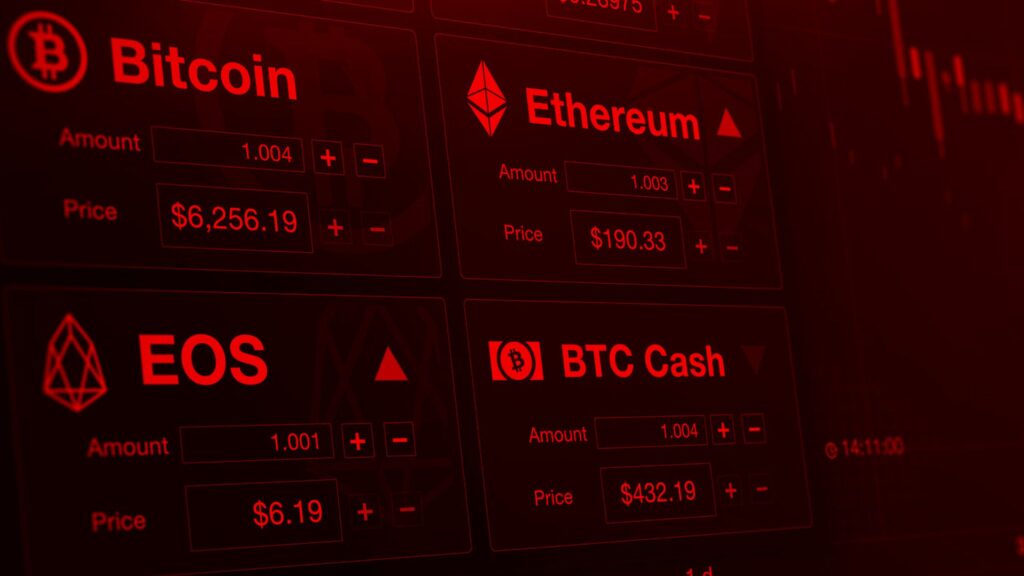
The world of digital currency has opened up new avenues for investors. It’s a realm where the traditional rules of investing are being rewritten daily. One such innovative concept is that of a crypto exchange. While the nature of these platforms might initially seem complex and daunting, a deeper understanding can reveal them as a straightforward gateway to the future of financial transactions.
How to Choose the Right Exchange for Your Investment Journey
The reputation and past records of a crypto exchange are crucial factors when selecting the best platform for your needs. It’s no secret that the cryptocurrency landscape is a wild west of sorts, with regulatory oversight often lagging behind the rapid pace of innovation. This makes proper research about the exchange, its founders, legitimacy, and security measures paramount.
For instance, a crypto exchange should boast a high level of security features. As these platforms are often unregulated, stringent security measures are not just desirable, but absolutely necessary. A closer look at the exchange’s history of handling customer-related issues and their responses to potential security breaches can provide valuable insights into their operational practices and values.
Moreover, the availability of diverse pairs and the fee structure are aspects that might directly impact your investment activities. These factors vary from one exchange to another, and so should align with your specific investment requirements.
Another aspect to consider is the ease of financial transactions. Opt for an exchange that offers multiple and convenient ways to withdraw and deposit money. These could range from traditional bank transfers to credit and debit card payments, and even peer-to-peer lending.
Breaking Down the Crypto Exchange Experience
Contrary to what some might believe, traditional stock exchanges do not support cryptocurrency trading. This falls under the unregulated sector, and cryptocurrency trades can only be conducted via crypto exchanges or crypto e-brokerage firms.
In many jurisdictions, including India, there are currently no restrictions on trading or investing via crypto exchanges. However, it’s crucial to understand that this segment is not regulated by any central authority, making any trading activity purely at the investor’s risk.
Yes, crypto exchanges do charge fees from their users. These costs typically include fund transfer fees to/from the user’s bank account, maker or taker fees, and certain transaction fees based on trading volume. As always, the devil is in the details, and potential users should familiarize themselves with an exchange’s fee structure before committing.
Converting Cryptocurrency into Fiat and Vice Versa
Crypto exchanges facilitate the conversion of cryptocurrency into fiat currencies, and vice versa. The process is typically straightforward, requiring basic details such as name, gender, address, email ID, and date of birth to open an account. Additional documentation, like a PAN card, Aadhar card, or other identity verification documents, may be needed for KYC formalities.
Freedom in the Face of Regulation
In the face of a world where fiscal control is often centralized and opaque, crypto exchanges represent a beacon of financial autonomy. They embody a system that acknowledges the individual’s sovereignty over their financial destiny. It’s a realm that, despite its inherent risks, offers a vision of a future where the power of financial decision-making is decentralized and democratized. Here, the value of an individual’s assets and the power to trade them are not subject to the whims of opaque institutions, but are instead firmly in the hands of the individual.
To conclude, it’s crucial to note the adage, “Not your keys, not your coins,” which has been circling in the wake of recent cryptocurrency exchange meltdowns. This phrase expresses the belief that investors cannot truly claim their cryptocurrency holdings unless they are stored in a self-custodied wallet, for which they personally have the keys. Many who are new to cryptocurrency and wish to avoid the technical complexities of maintaining their own wallet often resort to custodial solutions provided by third parties such as exchanges or investment managers. These solutions allow users to invest in cryptocurrencies without needing to learn how to use a self-custody wallet. However, this approach means the middle man is in control of the keys to the users’ holdings. According to proponents of the “not your keys” philosophy, a wallet on a centralized exchange does not truly belong to the account-holder. If withdrawals are paused or if worst-case scenarios occur, such as the collapse of an exchange or a cyber-attack, users could lose access to their crypto holdings entirely
Sources
What Are Crypto Exchanges and How Do They Work – Forbes Advisor INDIA1.




